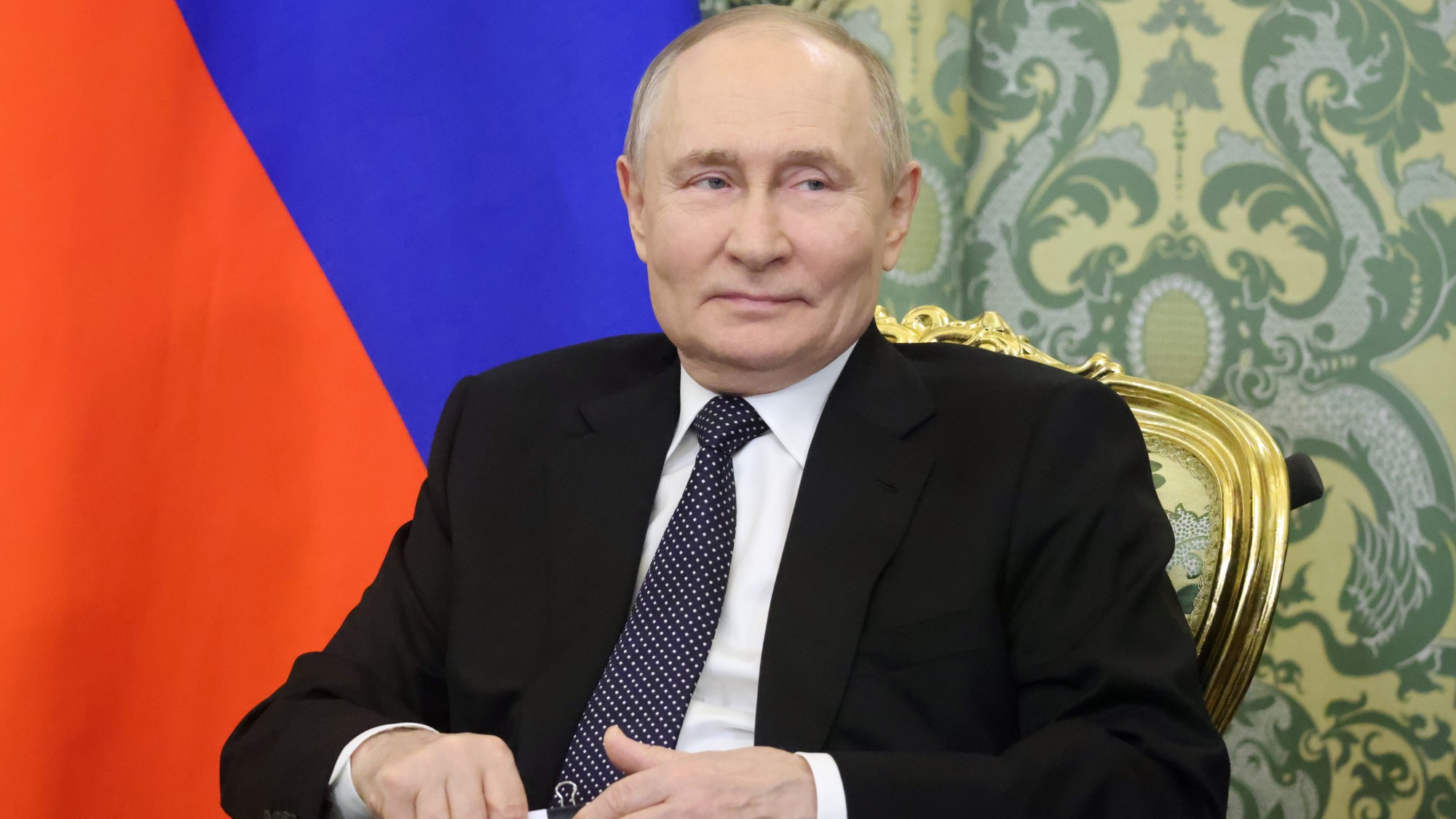How feasible is a Ukraine ceasefire?
Kyiv has condemned Putin's 'manipulative' response to proposed agreement

A free daily email with the biggest news stories of the day – and the best features from TheWeek.com
You are now subscribed
Your newsletter sign-up was successful
Vladimir Putin thinks there are "grounds for optimism" over a 30-day ceasefire deal with Ukraine but added that there is "a lot ahead to be done".
With Volodymyr Zelenskyy rejecting Moscow's "manipulative" preconditions and both sides reporting enemy drone attacks overnight, a truce seems further away than it once appeared.
What did the commentators say?
Putin's conditions are believed to include the demilitarisation of Ukraine, an end to Western military aid and a commitment to keeping Kyiv out of Nato. This was “a no disguised as a yes”, said the BBC, because the terms would be "devastating" for Ukraine to accept.
The Week
Escape your echo chamber. Get the facts behind the news, plus analysis from multiple perspectives.

Sign up for The Week's Free Newsletters
From our morning news briefing to a weekly Good News Newsletter, get the best of The Week delivered directly to your inbox.
From our morning news briefing to a weekly Good News Newsletter, get the best of The Week delivered directly to your inbox.
Russia's demands are "impossible" for Ukraine, said The Independent, so Kyiv is "likely to see Mr Putin's stance as an attempt to buy time" while his forces "squeeze the last Ukrainian troops out of western Russia".
Moscow has "no interest in a ceasefire", Boris Bondarev, a former Kremlin diplomat, told Politico, because Putin "thinks he can achieve his goals through fighting". Even Donald Trump's threats of significant financial consequences might not be enough because Putin's "not afraid of irritating him".
Moscow believes Trump is "weak, lacks a core set of principles and may be open to manipulation", a European intelligence official told The Washington Post. And Putin "has not veered from his maximalist goal of dominating" Ukraine.
But there are "good reasons" for the Kremlin to agree to the ceasefire, Mikhail Komin, a Russian political scientist, said on the Center for European Policy Analysis. It would give Russia "time to replenish its forces" and it could "push" Ukrainian troops out of the Kursk region first, burying Kyiv's idea of a "territorial exchange".
A free daily email with the biggest news stories of the day – and the best features from TheWeek.com
Ending a war is "seldom straightforward", said The Guardian, and as Russia has "a record of violating ceasefires and peace agreements, a robust process is critical".
That process could require several thousand monitors, "able to communicate and deconflict across both sides" of the front, which is 2,000km (1,250 miles) long. But modern technology, such as drones, airborne and satellite reconnaissance, would make ceasefire monitoring "easier" now than it was in the aftermath of the Minsk agreements of 2014 and 2015.
What next?
Trump's envoy Steve Witkoff met Putin during his visit to Moscow yesterday, the Kremlin has confirmed, and the two men agreed that the US and Russian presidents will speak to each other. "The exact time of the conversation between the two presidents has not yet been agreed upon," said Kremlin spokesperson Dmitry Peskov, but there is an "understanding" in both countries that a "conversation between the presidents" is "necessary".
Chas Newkey-Burden has been part of The Week Digital team for more than a decade and a journalist for 25 years, starting out on the irreverent football weekly 90 Minutes, before moving to lifestyle magazines Loaded and Attitude. He was a columnist for The Big Issue and landed a world exclusive with David Beckham that became the weekly magazine’s bestselling issue. He now writes regularly for The Guardian, The Telegraph, The Independent, Metro, FourFourTwo and the i new site. He is also the author of a number of non-fiction books.
-
 ‘Those rights don’t exist to protect criminals’
‘Those rights don’t exist to protect criminals’Instant Opinion Opinion, comment and editorials of the day
-
 Key Bangladesh election returns old guard to power
Key Bangladesh election returns old guard to powerSpeed Read The Bangladesh Nationalist Party claimed a decisive victory
-
 Judge blocks Hegseth from punishing Kelly over video
Judge blocks Hegseth from punishing Kelly over videoSpeed Read Defense Secretary Pete Hegseth pushed for the senator to be demoted over a video in which he reminds military officials they should refuse illegal orders
-
 Trump’s EPA kills legal basis for federal climate policy
Trump’s EPA kills legal basis for federal climate policySpeed Read The government’s authority to regulate several planet-warming pollutants has been repealed
-
 House votes to end Trump’s Canada tariffs
House votes to end Trump’s Canada tariffsSpeed Read Six Republicans joined with Democrats to repeal the president’s tariffs
-
 Bondi, Democrats clash over Epstein in hearing
Bondi, Democrats clash over Epstein in hearingSpeed Read Attorney General Pam Bondi ignored survivors of convicted sex offender Jeffrey Epstein and demanded that Democrats apologize to Trump
-
 ‘The mark’s significance is psychological, if that’
‘The mark’s significance is psychological, if that’Instant Opinion Opinion, comment and editorials of the day
-
 Judge blocks Trump suit for Michigan voter rolls
Judge blocks Trump suit for Michigan voter rollsSpeed Read A Trump-appointed federal judge rejected the administration’s demand for voters’ personal data
-
 US to send 200 troops to Nigeria to train army
US to send 200 troops to Nigeria to train armySpeed Read Trump has accused the West African government of failing to protect Christians from terrorist attacks
-
 Grand jury rejects charging 6 Democrats for ‘orders’ video
Grand jury rejects charging 6 Democrats for ‘orders’ videoSpeed Read The jury refused to indict Democratic lawmakers for a video in which they urged military members to resist illegal orders
-
 Trump links funding to name on Penn Station
Trump links funding to name on Penn StationSpeed Read Trump “can restart the funding with a snap of his fingers,” a Schumer insider said